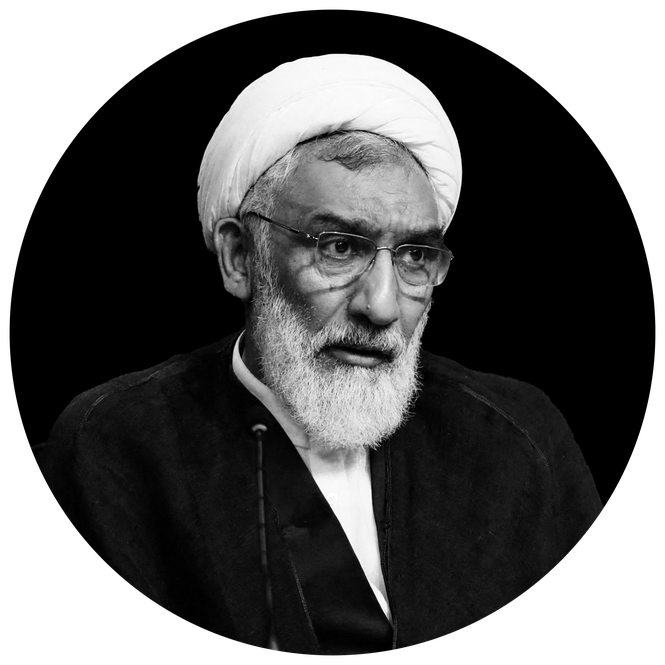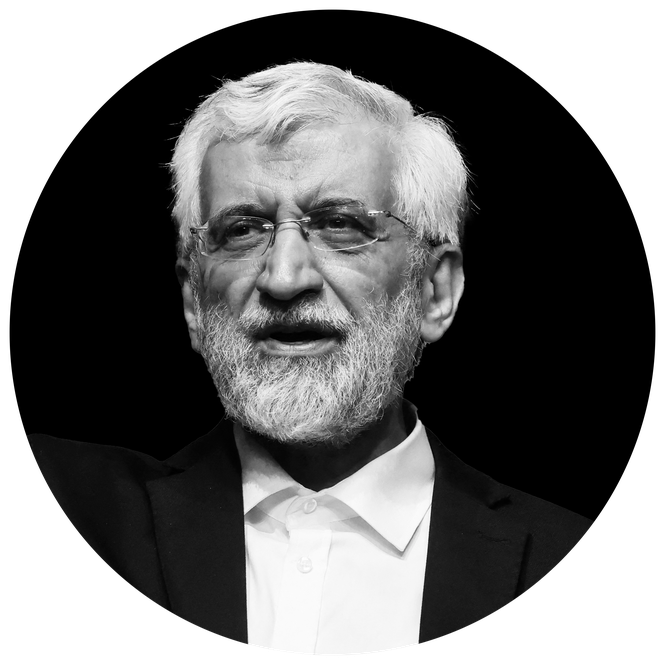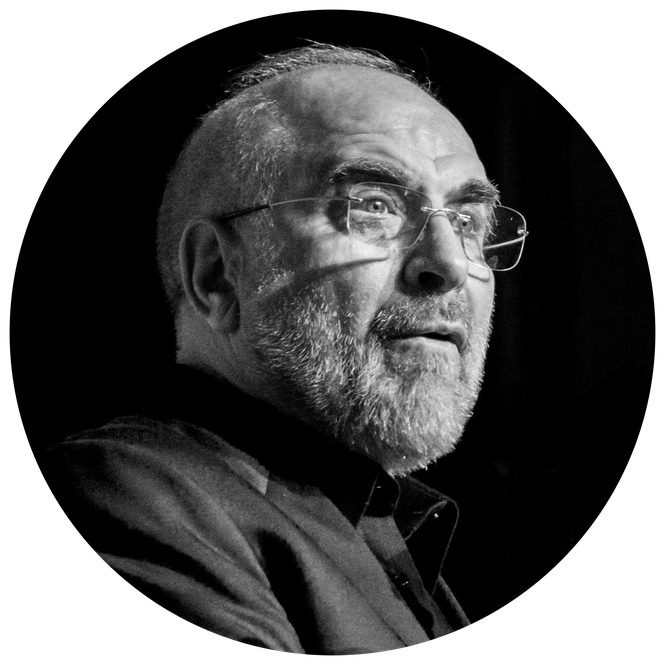Even the Iranian Election Is About Trump
7 min read
A specter is haunting Iran’s presidential election—the specter of Donald Trump’s return to office. Although Trump has been out of the White House for more than three years, he seems to come up more than Joe Biden, and more than other foreign politicians, in debates among the six candidates in the lead-up to Iran’s election on June 28.
To understand why, consider the recent history of Iran-U.S. relations—specifically, the nuclear deal negotiated between the Obama administration and that of Iran’s centrist former president Hassan Rouhani.
In 2013, Rouhani campaigned on the promise of making a deal with the West: Iran would limit its nuclear program in exchange for sanctions relief. That agreement was finally reached in 2015, after months of grueling negotiations, led by U.S. Secretary of State John Kerry on one side and Rouhani’s foreign minister, Javad Zarif, on the other. Trump vocally opposed the deal, and when he became president, he tore it up in 2018. He adopted a policy of “maximum pressure” on Iran instead, characterized by intensified sanctions and culminating in 2020 with the assassination of Iran’s best-known general, Qassem Soleimani.
The 2015 deal and its fate might feel like ancient history in the United States, but the topic remains very fresh in Iran. On Monday, the six approved candidates for president held their televised foreign-policy debate, and much of the discussion revolved around the ill-fated nuclear deal. One reason the subject has been so central throughout this campaign is that Zarif is effectively acting as the running mate of Masoud Pezeshkian, the sole reformist candidate, appearing by his side in TV debates and campaign stops around the country.

In these appearances, Zarif defends the 2015 deal and harshly attacks Pezeshkian’s two major conservative rivals, the ultra-hard-liner Saeed Jalili and the conservative Mohammad Baqer Qalibaf, both of whom are linked to the saga of Iranian American talks in their own way. Jalili was Iran’s chief nuclear negotiator from 2007 to 2013, and his bellicose approach led to intensified U.S. sanctions. In the years since, he has been a harsh critic of Rouhani, Zarif, and the 2015 deal. As speaker of Parliament, Qalibaf helped pass a bill in late 2020 that made Iran’s return to its obligations under the 2015 deal much more difficult. Written by the hard-liner-dominated Parliament, the bill was passed shortly after Israel’s assassination of the former head of Iran’s nuclear-weapons program and weeks before Biden, who had promised to return the U.S. to the 2015 deal, took office. Rouhani recently called it the worst legislation in the history of the Islamic Republic.
But Iran’s presidential hopefuls don’t just invoke Trump’s name in relation to the past. The former U.S. president also shadows their projections for the future. The candidates seem to anticipate that Trump will return to power in 2025, and that the next Iranian president will have to contend with his unpredictable second term.

On May 26, Hosamoddin Ashena, an influential former adviser to Rouhani who now runs the centrist Mostafa Pourmohammadi’s campaign, posed a simple question on X: “Who will be able to run the country against Trump?” This question helped steer discussion from early on.
Pourmohammadi has a long past in Iran’s security services and had a hand in the mass executions of the 1980s. No one expects him to win the presidency, but he is playing an intriguing role in the debates this season: He has been vociferously pro-reform and anti-hard-liner, presumably helping Pezeshkian. His warnings about Trump’s possible return led hard-liner candidates to attack him. One accused him of “promoting Trumpophobia.” Pourmohammadi’s campaign issued a poster promoting the candidate as “the man who can stand up to Trump.” (In 2020, Pourmohammadi called Trump’s loss to Biden a “divine gift” to Iran.)
Pezeshkian’s supporters have sounded similar themes. Mohammad-Javad Azari Jahromi, Rouhani’s young, tech-savvy communications minister, told the public that he would support Pezeshkian because of “worries about Trump’s possible return.” Zarif gave a stormy, eight-minute televised speech on June 18, blasting hard-liners for taking credit for a recent boom in oil sales. The increase was possible only because of Biden’s lax policy in enforcing sanctions, Zarif said: “Let Trump come back, then let’s see what you are up to.” In a rally in Kashan, Zarif called Trump “the most cruel president of America.”

Zarif’s point about oil sales provoked controversy and rebuttals from hard-liners. Such claims were “self-humiliation” for Iran, Jalili said. On June 19, when Iran beat the U.S. in a tense volleyball game, Jalili mocked Zarif by commenting: “I hope they don’t say that the Americans didn’t want to win themselves!” He added, “There are 200 countries in the world, and Iran shouldn’t wait for just one.”
“Let Trump come,” another hard-liner candidate said in the debate on Monday. “Don’t scare us with the Republicans. We will negotiate with them and impose our demands on them.”
But many in the Iranian establishment worry that the coincidence of a bellicose Jalili as president and a second Trump term would be explosive. Jalili’s presidency could be “so very dangerous for Iran, and I feel this in every cell of my body,” Zarif said last week in an online town hall on the app Clubhouse. Some observers had hoped that Jalili would resign in favor of Qalibaf, but the Paydari Front, an influential hard-liner group, has endorsed him, making his withdrawal less likely.
Qalibaf, who has tried to position himself as a technocratic centrist, made perhaps the most important promise of the debate: If the West is willing to lift sanctions, his administration would scale down Iran’s nuclear program and effectively go back to its obligations under the 2015 deal. Iran could do that even within the contours of the notorious 2020 bill that Qalibaf helped push through Parliament, he insisted.

“We need the sanctions to be lifted, and for that, we will go anywhere and negotiate with anyone,” Qalibaf had said in an earlier debate last week.
In other words, of the three major candidates, two seem motivated to talk with the U.S. to help lift the sanctions and decrease Iran’s isolation. Jalili is the fundamentalist outlier. A reformist political activist and scholar of international relations spoke for many when she posted on X expressing hope for a Qalibaf-Pezeshkian alliance and a “national consensus” against Jalili. She has since gone as far as endorsing Qalibaf as a good “strategic choice.” Top of mind for the anti-Jalili candidates and their supporters is the possibility of talking with the United States, and hence the prospect of confronting a Trump White House.
The current likelihood is that no one will win Iran’s election outright on Friday, and the voting will go to a second round on July 5. If Jalili makes it to the runoff, there might be an upsurge in turnout to help defeat him. “I won’t vote in the first round, but if Jalili makes it to the second round, I’ll vote for anyone to stop him, and so many around me are the same,” a student at the University of Tehran told me on Monday.
The very fact that the two main front-runners—Qalibaf and Pezeshkian—are speaking positively of talks with the U.S. suggests that Supreme Leader Ali Khamenei may even be inclined toward a possible deal. Without his blessing, these candidates couldn’t have run in the first place.
Here in the U.S., the candidates are also preparing for a debate. And Trump will likely make Iran a campaign issue. In a recent podcast appearance, he made the outlandish claim that Iran would have joined the Abraham Accords, which paved the way for diplomatic ties between Israel and four Arab countries, if he had remained in office. “I had them at the point where you could’ve negotiated, a child could have made a deal with them, and Biden did nothing,” he added.
Revelations made by Zarif and others in recent weeks cast serious doubt on Trump’s claim. Rouhani was ready to ink a deal with the U.S. during his last weeks in office, in the summer of 2021, Zarif said, but Iran’s hard-liners scotched it. Khamenei was apparently worried that a Rouhani-Biden deal would politically strengthen the centrist camp in Iran, and he preferred for any deal to take place under a president closer to himself. The hard-line Raisi administration, for all its harsh rhetoric, conducted secret talks with the U.S. as recently as last month and reestablished diplomatic ties with Saudi Arabia. What effectively made a deal with the Biden administration politically impossible was the anti-regime uprising of Iranians in 2022–23.
In other words, contrary to Trump’s claims, there was little Biden could have done to make a deal. Conversely, Trump’s maximum-pressure policy also failed to force Iran into a new deal. In fact, Iran’s nuclear program has gone from being severely limited under the terms of the 2015 deal to only a short step away from building a nuclear bomb—and such advances took place mostly during the Trump administration. That is in part because Iran’s leaders worry about the optics and consequences of making a deal under aggressive pressure.
Whether or not Trump wins in November, his specter will already have helped shape the political landscape in Iran.



